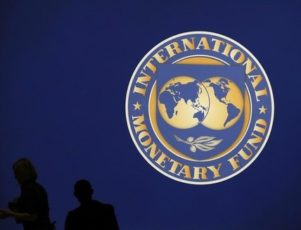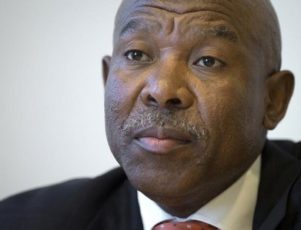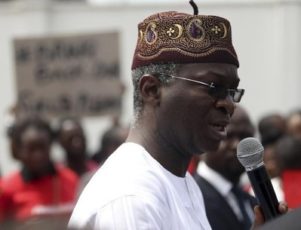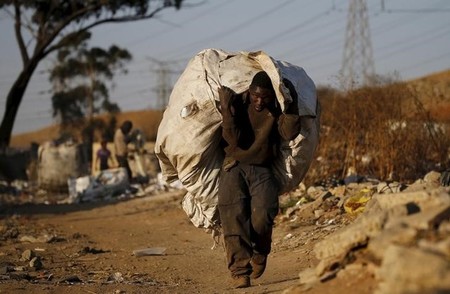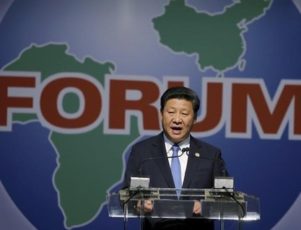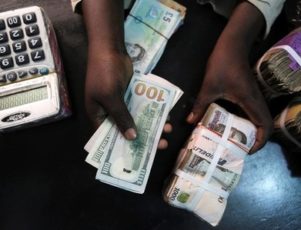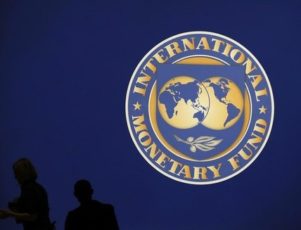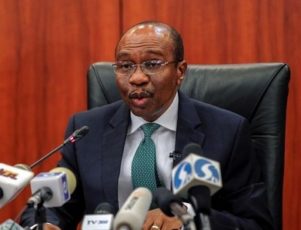CAIRO (Reuters) – Egypt said on Tuesday it was close to agreeing an International Monetary Fund (IMF) lending programme to ease its funding gap and restore market stability and was seeking to secure $7 billion annually over three years.
Prime Minister Sherif Ismail ordered the central bank governor and minister of finance to complete negotiations for the programme with an IMF team that will visit Egypt in the next few days, the cabinet said in a statement.
“We are resorting to the IMF because the budget deficit is very high, between 11 and 13 percent within the past six years,” finance minister Amr el-Garhy, said in a phone interview with presenter Lamis El-Hadeedi on a private TV channel late on Tuesday.
In Washington, the IMF welcomed Egypt’s request for financial support and said it would send a mission to Egypt for about two weeks from July 30.
The cabinet statement, after a five-hour meeting, was the first official confirmation that talks with the IMF were under way. The statement said talks had been ongoing for three months.
“The prime minister stressed the need to cooperate with the IMF through the support program to enhance international confidence in the economy and attract foreign investment, and therefore achieve monetary and financial stability … targeting $7 billion annually to fund the program over three years,” the cabinet statement said.
The government is seeking $12 billion from the IMF, $4 billion a year, which will carry an interest rate of 1 or 1.5 percent, el-Garhy said. The package includes issuing $2-3 billion in international bonds which will be offered as soon as possible, between September and October, he added.
Economists welcomed the news, which came after a turbulent few weeks for Egypt’s currency, the pound, which has plummeted to new lows on the black market as confusion mounted over the direction of monetary policy.
“It’s great. Finally,” said Hany Genena, head of research at Beltone Securities Brokerage. “Confidence will be restored in the government and central bank. Secondly, we will see flotation of the pound, if not tomorrow, next week, the week after.”
Genena said he expected the Cairo stock market to surge after the news and for the currency to strengthen on the black market. The black market had already strengthened slightly from lows near 13 to the dollar on Monday.
Two black market traders contacted by Reuters said they were selling dollars at about 12.80 to 12.85 pounds after the IMF deal was announced.
“I think the stock index will hit 8,000 in the next couple of days,” Genena added. The benchmark EGX30 <.EGX30> closed up 0.3 percent at 7,540 on Tuesday.
Egypt’s economy has been struggling since a mass uprising in 2011 ushered in political instability that drove away tourists and foreign investors, both major earners of foreign currency. Reserves have halved to about $17.5 billion since then.
The dollar shortage has forced Egypt to introduce capital controls that have hit trade and growth, while the value of the Egyptian pound has plummeted on the black market in recent weeks as expectations of a second devaluation this year mount.
The government has pushed ahead with its reform programme, including plans for a value added tax (VAT) and subsidy cuts that were put on hold when global oil prices dropped.
A VAT bill is in its final stages of preparation but has faced resistance in parliament due to concerns over inflation, which has touched seven-year highs since the currency was devalued by 13 percent in March.
Egypt’s ambitious home-grown fiscal reform programme formed the basis of a $3 billion three-year loan deal with the World Bank that was signed in December. But the cash has yet to be disbursed since the World Bank is waiting for parliament to ratify economic reforms including VAT.
A cabinet minister told Reuters last month that Egypt had started negotiations with the IMF and that the central bank was leading the talks.
A statement released by Capital Economics, an independent economic research company, also welcomed the news.
“If approved, this would help to plug Egypt’s external financing requirement and improve the economy’s growth prospects,” it said. “This would make a sizeable dent in Egypt’s gross external financing requirement, which we estimate to be around $25 billion over the coming year.”
(Reporting by Amina Ismail and Lin Noueihed; Additional reporting by David Lawder in Washington; Writing by Lin Noueihed; Editing by Tom Heneghan and James Dalgleish)
Read more

